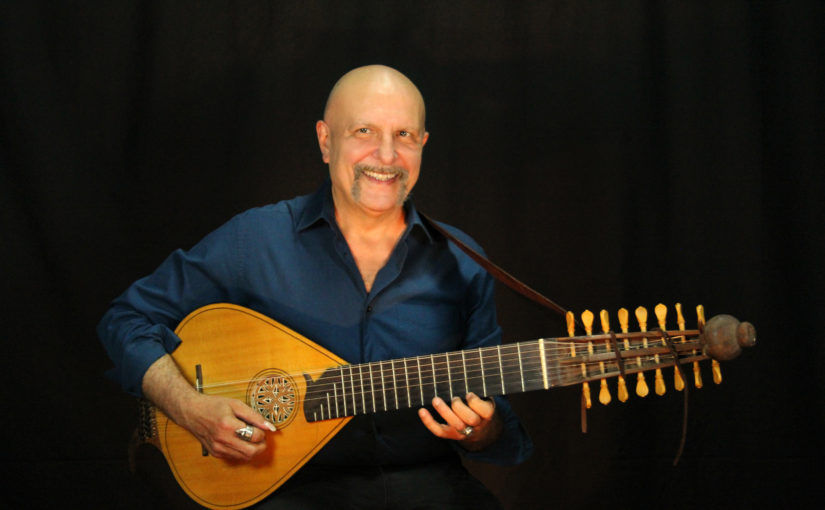PURPOSE
Rather than studying a particular repertoire, I propose to work on musical principles that we find in the music of the learned, popular and medieval European traditions of the “Greater Mediterranean”: from Northern India to Scandinavia.
You will not only be a performer but also a creator ”Composer”.
Solo or group, you will create endless spontaneous music. You will know how to improvise on existing themes and you will be able to compose your own pieces.
GENERAL CONTENT
The study of Modes
The scale becomes fashionable when it has two main notes «Finalis and Tonal center» which gives it its «Ethos»: its character, its feeling. Western and Eastern Modes. How to play with?
The study of Rhythms
Work on the two families of rhythms: rhythms imitating nature and mathematical, geometrical, symmetrical and asymmetrical rhythms.
Improvisation
Arrhythmic melodic improvisation: prelude (Taqsim, Alap).
Rhythmic melodic improvisation on a rhythm.
Arrhythmic melodic improvisation on a rhythm.
Rhythmic improvisation on percussion. Solo or in accompaniment.
Improvisation on the harmonic grids of the Renaissance.
Improvisation of accompaniment of songs, dances and instrumental melodies.
Improvisation of Renaissances diminutions.
We’ll be working on songs by Trouvères, Troubadours, Cantigas de Santa Maria… oriental themes for monody.
We’ll also work on Renaissance dances (branles, pavanes, gaillardes…).
This work is easy to access, because it makes a lot of sense. You can practice in a very simple way and you can complicate infinitely.
TERMS OF PARTICIPATION
• It is open to all melodic or percussion instruments, traditional or modern, and to voices.
• Come with your instruments.
• There is no age limit but it is preferable to master sufficiently the technique of your instrument or your voice to take advantage of the courses.
REGISTER NOW
>> ON-LINE REGISTRATION <<
>> RATES AND REGISTRATION PROCEDURE <<
BIOGRAPHY
Path
Born in Rabat, Morocco on 17/12/1952 in the double French-Moroccan culture, he studied singing and classical mandolin with his father Jean AGNEL at the age of 4; Study of classical music writing and contemporary music “concrete” with his uncle Aimé AGNEL. Family close to Arab-Andalusian musicians and popular Arab and Berber traditions. He arrived in France in 1964.
Study of classical guitar and electric guitar within the family. In 1969, studied classical and flamenco guitar in Oran, Algeria with José Maria Rodriguez. In 1970, in Paris, end of cycle of study of classical guitar and composition with Jacques Florencie Wilmann, which makes him enter the ensemble of contemporary music
“Musique Vivante” with Jean Pierre Drouet, Michel Portal, JF Jenny Clarke, Gaston and Brigitte Sylvestre…
In 1975, he joined the Ménestriers, an ensemble of medieval and Renaissance music, and engaged on a study of oriental music that had an influence on European medieval music. He returned to meet Arab-Andalusian musicians in Morocco, studied the Iranian Zarb with Djamchid Chemirani, the Oud under the guidance of Mounir Bachir, the Afghan Rûbab with Amir Djan, singing and Indian rhythm with Zahid Farani in Pakistan and the Gnaoua music with Si Mohamed Chaouqi.
For several years, he has devoted himself to the ancestor family of the guitar, the Cistre, the Cetera, the Orpharion and the Pandora in addition to the Oud, the Rebec and always the guitar. He is also a percussionist on the Zarb and Moroccan percussions.
Creations
- He recorded several CDs, Les Estampies en Duo with Djamchid Chemirani (Al Sur), Istanpitta with Djamchid Chemirani, Henri Tournier, Michael Nick and Idriss Agnel, Cetera “Corsica Cister Song”, with his professional students (Casa Edition), “Los Kaminos” with Milena Jeliazkova, Milena Roudeva and Idriss Agnel (Charles Cros Prize) (Accords Croisés).
- As accompanist and arranger: 5 CDs and concerts with Angélique Ionatos, CDs and concerts with Misia, Amina Alaoui, Ute Lemper, Houria Aïchi… CD with Jacques Higelin, Brigitte Fontaine, Areski, Didier Malherbe… Soloist at the Oud of the 2 CDs “Mozart the Egyptian”.
